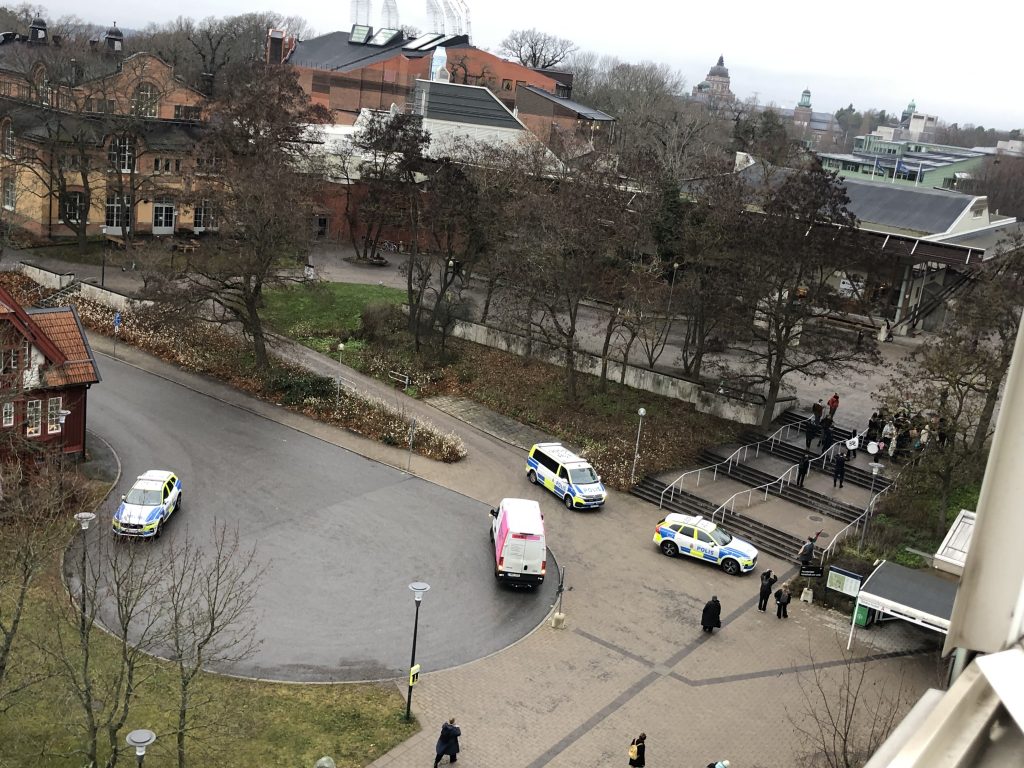
By Jonathan M. Feldman, December 3, 2024
On December 2, 2024, persons protesting Israel’s policies in the Middle East were met with three police cars as a testimony to the state’s commitment to silence persons banging drums (and/or chanting slogans). The scene was Stockholm University, outside the window of my office. While the drum-beating potentially disrupts the teaching process, both Herbert Marcuse and Bertolt Brecht favored precisely such a disruption in the knowledge flow to access truths. It seems that current political order in Sweden is very dedicated to protecting and advancing the normal course of action. Just the day before, the Agenda program on Swedish TV had two “experts” who largely sidestepped the problem of accidental nuclear warfare which is considerably increased by firing long-range missiles into Russia. In contrast, the risks of nuclear war are rather high as documented by the Bulletin of Atomic Scientists.
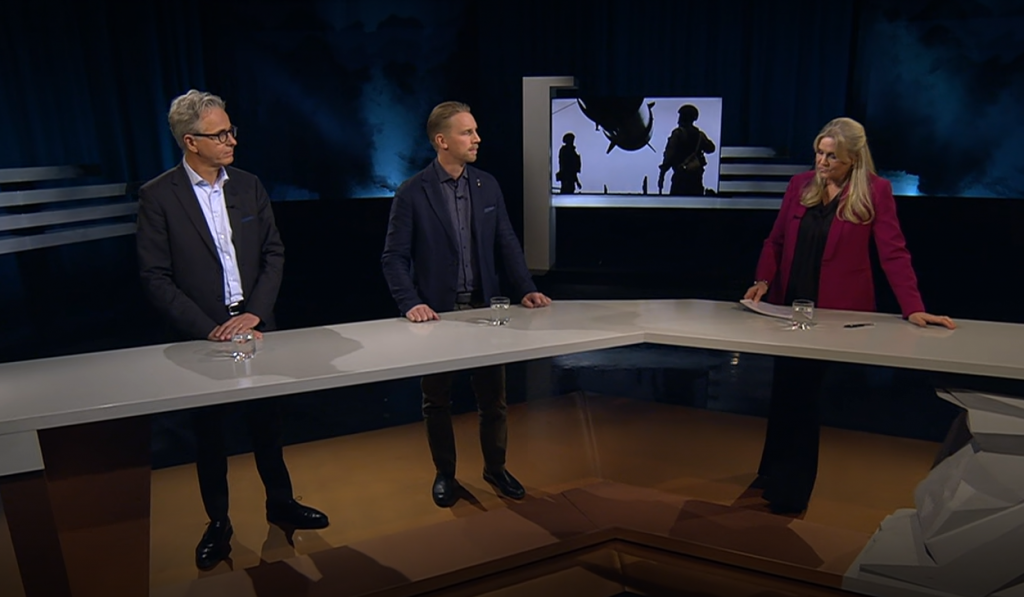
In the last minute, one expert made a passing reference to the risks, but could not connect that to sending long-range missiles to Ukraine that are then fired into Russia. Such firing risks triggering false findings about incoming nuclear missiles, something that has happened before when no such missile was even fired. No one sent three police cars to SVT headquarters despite the threat of displacing a nuclear threat being far more severe than the sound of a beating drum or chants. Rather, it is very important to maintain the majoritarian views at all costs, even while the minority views are actually less dangerous.
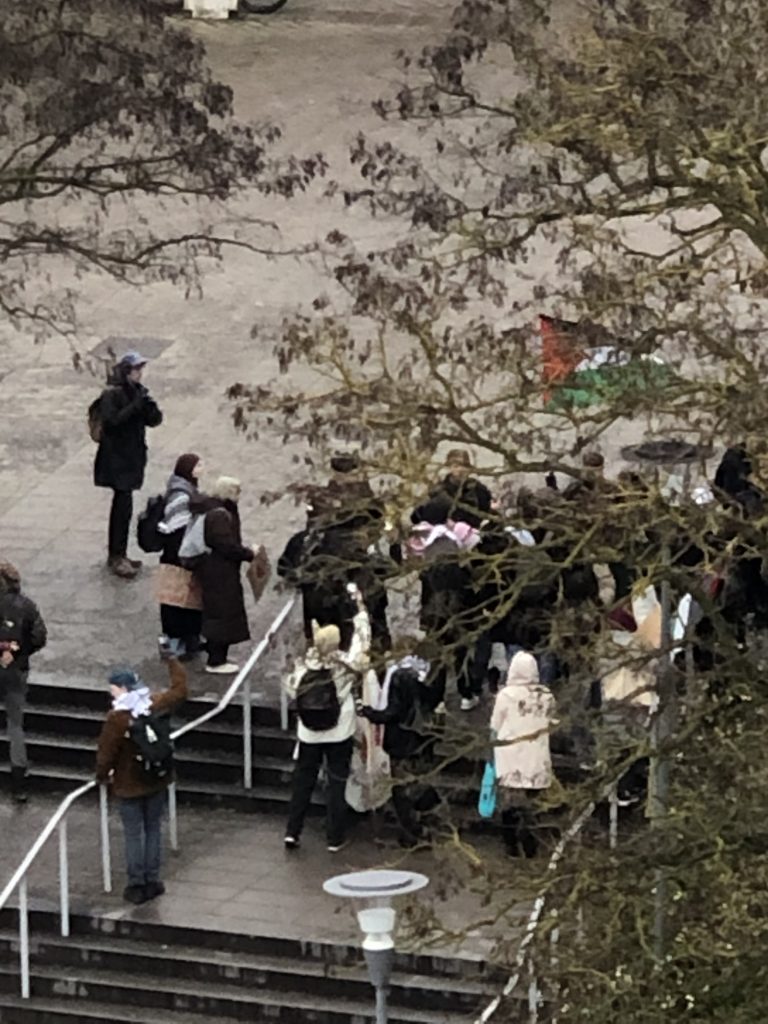
Silence about mass killing and a counter-productive bombing campaign is not terribly helpful. So if someone makes a noise about that, it is better than nothing. Yet, the opposition to the danger of this bombing is met with a police presence. Likewise, SVT saw fit to exclude voices who could have pointed to the danger of nuclear weapons. Here we see how police and television work together in maintaining hegemony, rather than in the ideal state of opposition. So just as the police could have been sent to SVT to inform them of the threat that they displaced (as good police citizens devoted to open dialogue), SVT likewise could have been sent to monitor the police to scrutinize how minority viewpoints are intimidated.
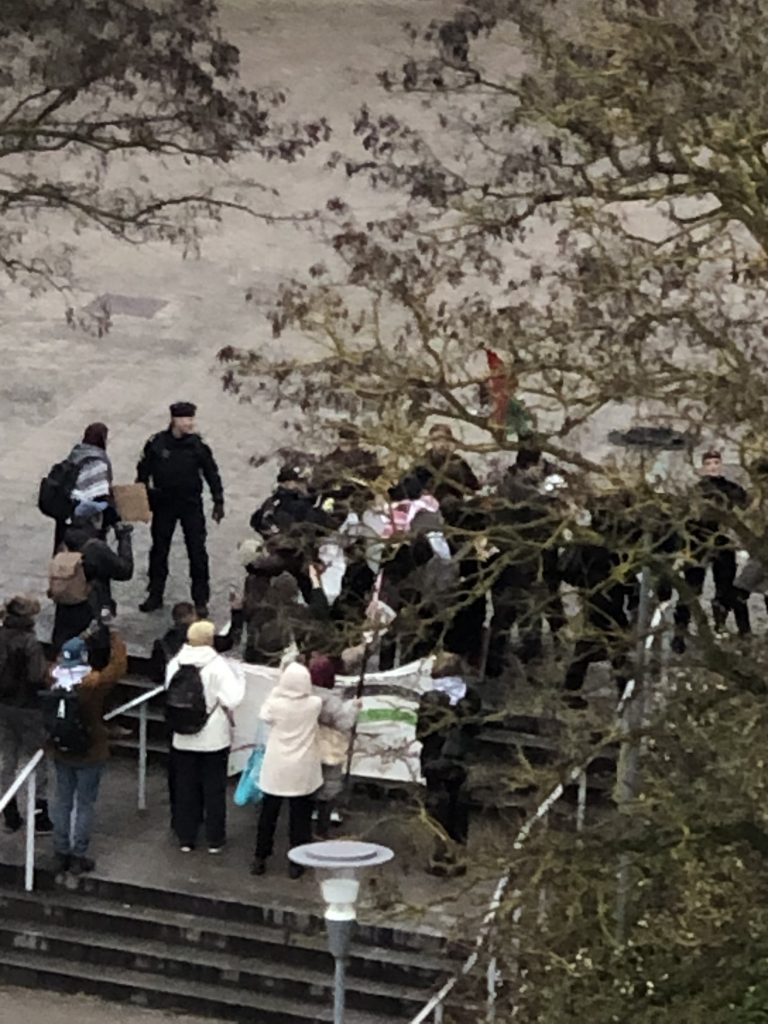
No such luck. Rather, I was left with a very painful feeling that I was witnessing the film Z about a military takeover that clubs down the truth. I see public television act like a state apparatus which profiles state-aligned experts who toe the line of NATO expansion, weapon expansion, and damn (displace) all the risks. In contrast outfits like Democracy House give Sweden a 99/100 rating in democracy. Other organizations similarly claim that Sweden’s democracy status is high, although they acknowledge minor flaws. Yes, Sweden is more democratic than many countries, but it certainly lacks in a pluralism of views which are supported by the ability to challenge the status quo. The ability depends on resources which are often monopolized by technocratic opinion, the herd mentality, and path-dependent ideas which find intellectual innovation challenging and irrelevant. By another measure, the share of persons satisfied with Swedish democracy declined from 81% in 2010 to 77% in 2022. This of course assumes that feelings about democracy by the public are a good measure of the status of democracy. They are not sufficient in my view. The Economist also ranked Sweden high (ranked fourth) in its 2023 democracy rating, the Democracy Index 2023 report.
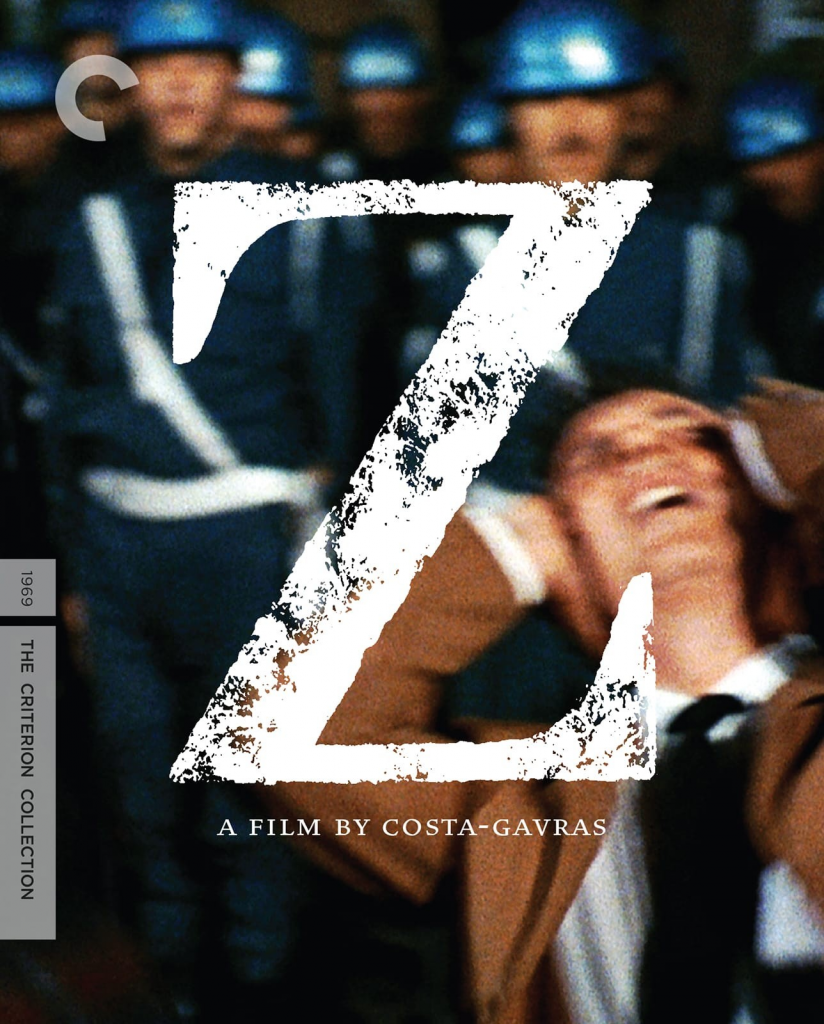

There is, however, a huge gap between the statistical analysis and the actual level of pluralism when it comes to: (a) intellectual diversity, (b) diversity of viewpoints in public debate, and (c) the equitable distribution of resources necessary to support (a) and (b). The standard indicators can’t really capture one-sided public discourse and matching academic homogeneous viewpoints.
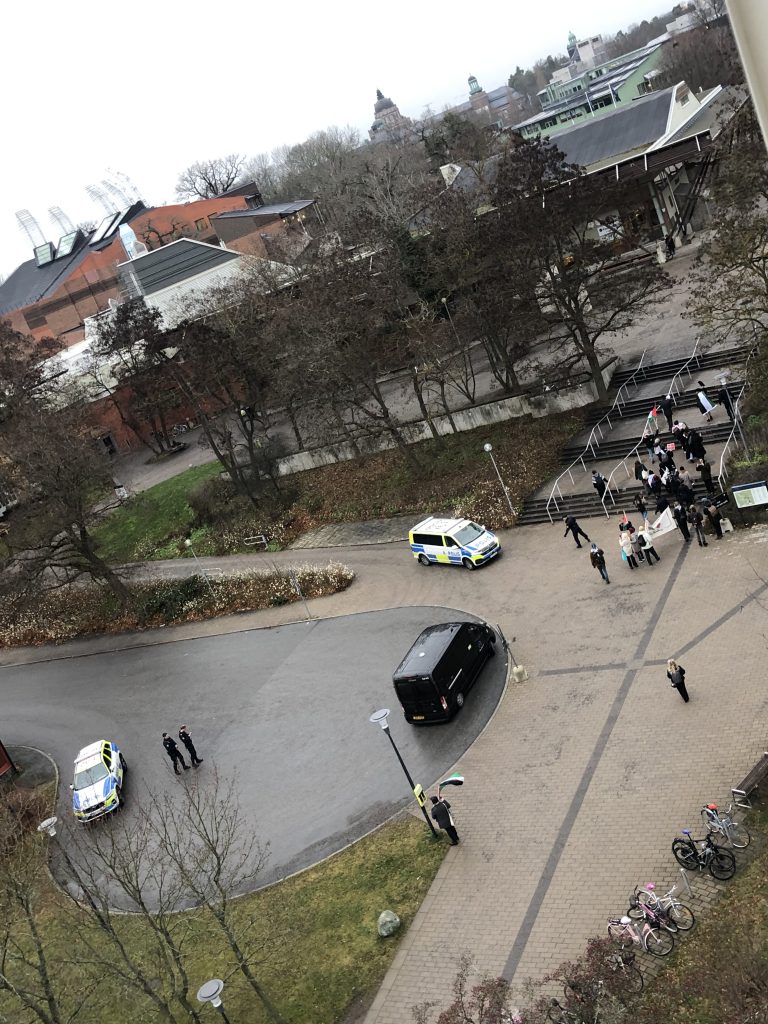
Universities are playing what role in this balance between truth and power? Apparently, there is a police alignment function in universities. The sound of drums and protestors are viewed as a policing matter, but it is rather the views of nuclear weapons risks that should be policed.
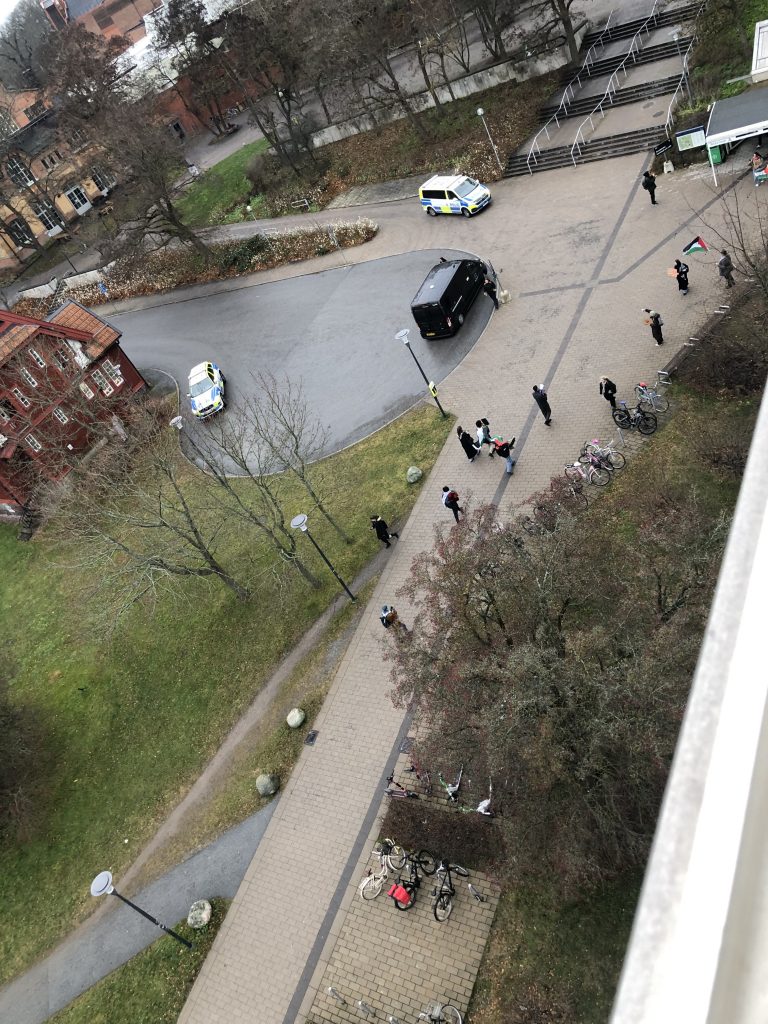
One of the speakers wrote elsewhere that “the rapid progress of technological development in AI, quantum computing and nanotechnology is changing…conditions even further. It is about things like the extremely fast speeds of the so-called hypersonic robots and thus shorter time for an opponent to react, the increasing accuracy of the weapons and increasingly better reconnaissance possibilities to find counter…nuclear weapons facilities. This development further increases the lethality of nuclear weapons, places new demands on so-called second-strike capabilities, and means that the risk of mistakes and accidental use may be greater. At the same time, some believe that these new technologies can also improve opportunities for verification and increase security in the handling of nuclear weapons.”
The tone in this analysis differed from the television appearance, however: “Another problem is that the so-called taboo against using nuclear weapons is beginning to weaken. Reckless and irresponsible repeated threats to use such weapons by Russia and North Korea risk normalizing the idea that it is possible to use them for limited military purposes.” The essay blames Russia and China for their role in not supporting arms control. Yet, it is hard to argue for arms control when the US and NATO support the eastward expansion of their alliance. Such alliance expansion is a trigger for conflict, irrespective of claims that Russia simply invades countries because it is non-democratic. The lack of democracy can also be seen in how Sweden’s formal entry into NATO was advanced without much public involvement. Rather, experts mediate what is considered rational and irrational even as they end up displacing rationality.